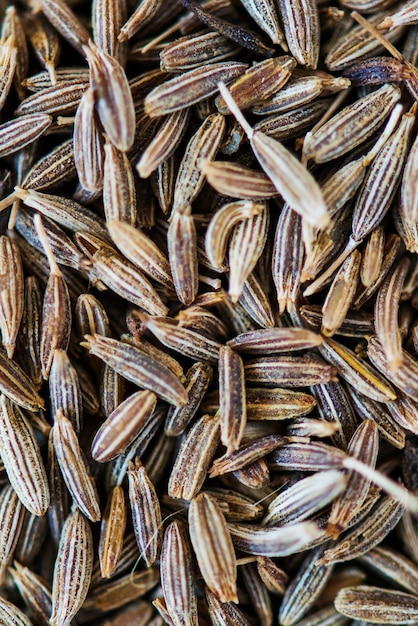
I always find it fascinating to discover the health benefits of everyday spices we have in our kitchens. Take cumin, for instance. It’s a staple ingredient for dishes like chili, tacos, curry, and fajitas, and you’ll often find it in Mexican, Spanish, Middle Eastern, and Indian recipes.
In the U.S., cumin is a common ingredient in taco seasoning packets, but it’s better to make your own spice mix to avoid the extra sodium and fillers in store-bought versions. Cumin isn’t just another spice; it has a distinct flavor and impressive health benefits. I usually buy cumin in bulk and store it in a mason jar for easy access. Here’s why I love it:
Cumin has been valued for its long and fascinating history. Originally from Egypt, it was used by ancient Egyptians and later became popular in Greece and Rome. In the Middle Ages, it symbolized love and fidelity and was used in weddings. Spanish and Portuguese colonists then brought it to the Americas. Beyond its flavor, many cultures have prized cumin for its medicinal properties, using it as a diuretic, for stomach issues, and even to aid in female health.
Cumin also serves as a poultice for swelling or sore throats, and there are remedies that include cumin mixed with ghee to relieve hiccups. Its benefits have been well-documented through studies: it contains essential minerals like iron and magnesium, along with vitamins A, C, E, and B6. Research shows cumin can stimulate digestion and might even protect memory and reduce stress. Studies also suggest it may help manage diabetes by increasing insulin sensitivity and regulating blood sugar.
Cumin has been found to lower cholesterol and could have anti-asthmatic properties due to its ability to act as a bronchodilator. It’s also known for its potential in boosting immunity and speeding recovery from colds, thanks to its vitamin C and iron content.
Interestingly, cumin can aid in weight loss. A study showed that consuming a small amount of cumin daily helped participants lose more weight than those who didn’t. This is likely due to cumin’s ability to influence fatty acid production in the liver. Plus, it might have protective effects against liver toxicity and osteoporosis.
Cumin is versatile in the kitchen and beyond. You can add it directly to various dishes or use it as a rub on meats. It’s also great with veggies or to flavor rice. Outside the kitchen, cumin can be used in skincare; for instance, it makes for a good face scrub when mixed with honey due to its antibacterial and exfoliating properties. Although its essential oil is very potent, it can be diluted and used for calming digestive upset or purifying the air.
Including cumin, like in CCF detox tea, can offer digestive and weight loss benefits. You can find cumin in most grocery stores, but just ensure it’s high quality. It’s generally safe, but in high doses, it might affect testosterone or menstruation, so it’s wise to use caution, particularly if you’re pregnant or have a medical condition.
As always, consulting with a doctor before using cumin beyond cooking amounts is advisable. Do you already use cumin in your meals? What’s your favorite way to include it in your recipes? Share your thoughts!

